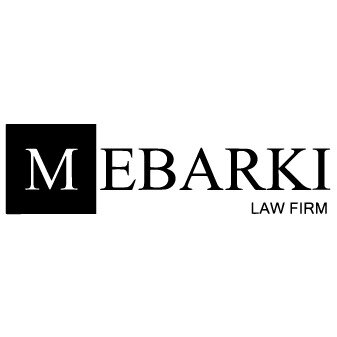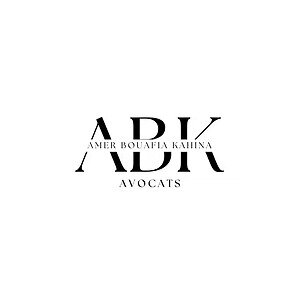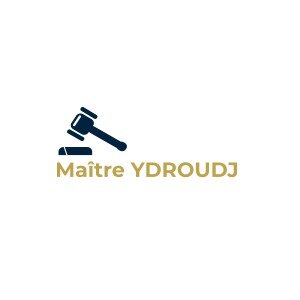Best Water Law Lawyers in Algeria
Share your needs with us, get contacted by law firms.
Free. Takes 2 min.
Or refine your search by selecting a city:
List of the best lawyers in Algeria
About Water Law in Algeria
Water Law in Algeria refers to the set of legal rules and regulations that govern the management, use, protection, and distribution of water resources across the country. As a semi-arid country, Algeria faces significant challenges related to water scarcity and efficient use. The Water Code (Law No. 05-12 of 2005) is the primary legislation overseeing these matters. This law outlines fundamental principles such as state ownership of water resources, environmental protection, equitable access, licensing for water use, and responsibility for pollution control. Understanding the foundational aspects of Water Law is important for individuals, businesses, and communities relying on water for daily use, agriculture, or industry.
Why You May Need a Lawyer
You may need a lawyer specializing in Water Law in Algeria for a variety of reasons. Some of the most common situations include:
- Resolving disputes over water rights and access between neighbors or communities
- Navigating the licensing process to drill wells or use surface water for agriculture or industrial purposes
- Addressing accusations or fines related to illegal water extraction or pollution
- Understanding the rights and duties of water users under the law
- Representing your interests in court or before administrative bodies in water-related cases
- Securing compensation for damage caused by pollution or unlawful use of water
- Complying with environmental impact assessment requirements for new projects that use water resources
- Advising local authorities or associations on sustainable water management practices
A legal specialist can help clarify complex rules, ensure you comply with regulations, and advocate for your rights, decreasing the risk of costly legal issues.
Local Laws Overview
Algeria's Water Law framework is mainly governed by the Water Code (Law No. 05-12 of 2005), which sets out the following key provisions:
- State Ownership: All surface and underground water resources are considered public property managed by the state.
- Permitting and Concessions: Any significant extraction or use of water for agricultural, industrial, or commercial purposes requires a permit or concession from relevant authorities.
- Protection and Quality: Laws and regulations establish strict limits on pollution, requiring treatment and prevention measures to protect water quality.
- Allocation and Priority: Water allocation is prioritized for drinking water, then for agriculture, industry, and other uses.
- Dispute Resolution: Administrative and judicial avenues exist for resolving disputes involving water rights and uses.
- Environmental Impact: Projects that may affect water resources are subject to environmental impact assessments.
- Sanctions: Fines, administrative measures, or even criminal penalties can be imposed for illegal water extraction or pollution.
Local regulations and decrees may add further detail regarding water tariffs, restrictions during droughts, and responsibilities of water management authorities.
Frequently Asked Questions
What is the main legislation governing Water Law in Algeria?
The key legal text is the Water Code (Law No. 05-12 of 2005), outlining principles for water resource management, use, protection, and licensing.
Can private individuals own water sources in Algeria?
No, all surface and underground water resources are public property and are managed by the state, although individuals may have the right to use water under certain conditions.
Do I need a permit to drill a well on my land?
Yes, drilling wells for significant water extraction requires a permit from relevant authorities, even on private land.
How are water resources allocated in times of scarcity?
Drinking water needs have the highest priority, followed by agricultural and industrial uses. The authorities may impose restrictions during droughts to ensure fair distribution.
What are the legal consequences of illegal water extraction?
Illegal extraction can lead to administrative fines, criminal penalties, and the closure of unauthorized wells or connections.
How does the law protect against water pollution?
Strict regulations are in place to prevent dumping or discharge of pollutants into water bodies. Violators may face sanctions, including clean-up orders and penalties.
What should I do if my property is damaged by water pollution?
You can seek compensation through civil legal action, and authorities can investigate and penalize the responsible party.
Are there dispute resolution mechanisms for water rights conflicts?
Yes, administrative appeals and court proceedings are available for individuals or groups with disputes over water use or rights.
Does the law distinguish between water for personal use and commercial use?
Yes, personal use (domestic needs) is generally given priority and subject to fewer restrictions, whereas commercial or large-scale use requires special permits and is regulated more strictly.
How can I find out about local water usage regulations in my area?
Local water management agencies, municipal authorities, or specialized legal professionals can provide updates on applicable rules and regulations specific to your region.
Additional Resources
Several organizations and bodies provide information and support related to Water Law in Algeria:
- Ministry of Water Resources and Water Security (Ministère des Ressources en Eau et de la Sécurité Hydrique) - oversees water policy, permits, and enforcement
- Local District Water Agencies (Agences de Bassin Hydraulique) - manage regional water resources and issue local guidance
- National Agency for Water Resources (Agence Nationale des Ressources Hydrauliques) - conducts studies, monitoring, and technical oversight
- Environmental Protection Associations - provide advocacy and public awareness about water resource protection
- Legal Aid Services and Bar Associations - offer legal advice and often maintain directories of lawyers with expertise in Water Law
Consulting these resources can help you understand your rights, obtain necessary authorizations, and stay compliant with current regulations.
Next Steps
If you need legal assistance concerning Water Law in Algeria, here’s how to proceed:
- Identify your specific issue, whether it is securing a permit, resolving a dispute, or responding to a potential violation
- Gather relevant documents, such as permits, correspondence, and any evidence relating to your water use or dispute
- Contact the appropriate water or environmental authority for initial information, or locate a legal professional specializing in Water Law
- Set up a consultation to discuss your situation, understand your rights and obligations, and receive expert advice on next steps
- Maintain compliance with all legal and administrative processes, and ensure you follow up on deadlines or required actions
Starting the process early and consulting with a qualified legal expert can help prevent costly mistakes and ensure that your interests are protected under Algerian Water Law.
Lawzana helps you find the best lawyers and law firms in Algeria through a curated and pre-screened list of qualified legal professionals. Our platform offers rankings and detailed profiles of attorneys and law firms, allowing you to compare based on practice areas, including Water Law, experience, and client feedback.
Each profile includes a description of the firm's areas of practice, client reviews, team members and partners, year of establishment, spoken languages, office locations, contact information, social media presence, and any published articles or resources. Most firms on our platform speak English and are experienced in both local and international legal matters.
Get a quote from top-rated law firms in Algeria — quickly, securely, and without unnecessary hassle.
Disclaimer:
The information provided on this page is for general informational purposes only and does not constitute legal advice. While we strive to ensure the accuracy and relevance of the content, legal information may change over time, and interpretations of the law can vary. You should always consult with a qualified legal professional for advice specific to your situation.
We disclaim all liability for actions taken or not taken based on the content of this page. If you believe any information is incorrect or outdated, please contact us, and we will review and update it where appropriate.
Browse water law law firms by city in Algeria
Refine your search by selecting a city.












